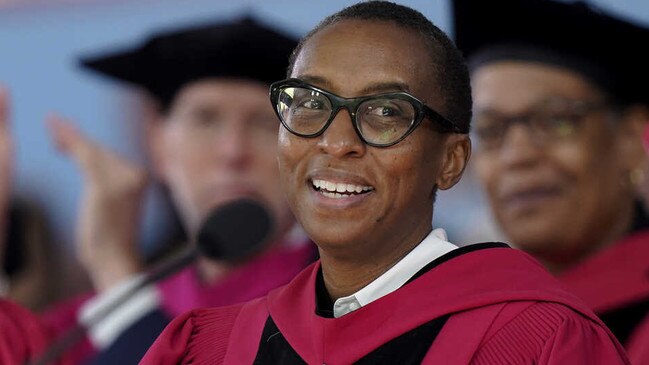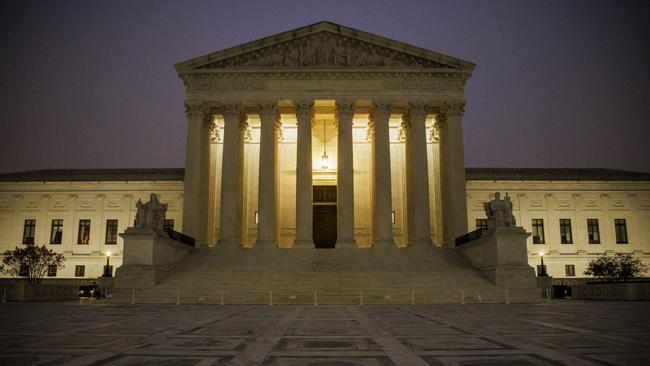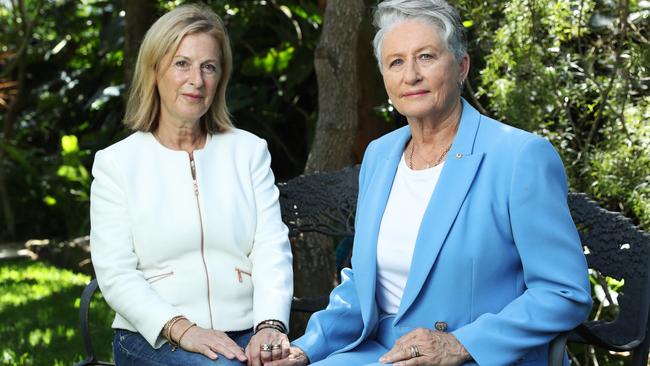Diversity, equity and inclusion without merit result in victimhood and mediocrity
Disillusionment with the diversity, equity and inclusion agenda sparks a backlash in the US.

Witness the complaint this week from some Hollywood actors that Jews have been left out of the Oscars’ diversity and inclusion agenda. Rules adopted by the Academy of Motion Picture Arts and Sciences in 2020 require productions to feature underrepresented groups to qualify for best picture. Nominated groups cover gender, sexuality, race and ethnic minorities, but not religious groups.
That exclusion upset an advocacy group called Jew in the City. It organised an open letter signed by more than 200 people in the entertainment industry claiming “an inclusion effort that excludes Jews is both steeped in and misunderstands anti-Semitism”.
Surely not every slight is anti-Semitism or racism or sexism, but I guess in a woke world if you can’t beat them, you try to join them. It’s worth a shot trying to lay claim to a place in the oppressed Olympics.
Seriously, isn’t this nonsense getting a bit tiresome? What if, instead, we gave the Oscar for the best picture to … the best picture?
Victimhood fights aside, the bigger problem with the diversity and inclusion agenda is the resulting injustice and mediocrity that comes when universities, companies and other organisations sideline genuine merit. Happily, more people are waking up to how wokeness is responsible for its own discrimination and prejudices.
The forced resignation of Harvard president Claudine Gay may mark the beginning of the end of the flawed and unfair diversity, equity and inclusion agenda that has dominated thinking at US universities and corporations in recent years.
Gay can’t be blamed for the iron grip DEI has on Harvard. After all, a bunch of senior people appointed her as president despite her thin record of academic leadership. And while someone has been cleansing Harvard’s DEI website of its more obvious stupidities, we need more concrete evidence than this and Gay’s sacking that the DEI agenda is receiving the full reckoning it deserves.
There is nothing inherently wrong with diversity. But when it became capital-D Diversity (along with Equity and Inclusion) it morphed into an ideological end in itself. Harvard, for example, lost sight of the fact diversity that enhances academic brilliance is a fine thing. A university should strive for diversity of viewpoints as well as diversity of race and gender. But Harvard chose a DEI agenda that undermined intellectual diversity, thereby sidelining the role of a university to search for truth. It ended up with a president who spoke about “my truth” – the opposite of Harvard’s motto of Veritas.
Diversity should be a means to an end, a genuine means to improving any institution, not a deadening end in itself. That way lies mediocrity. The good news is that the increasingly unlamented decline of the DEI push in the US is also a harbinger of a fightback against its parent movement, wokeness. Even better news, for our purposes, is that the main drivers of these healthy green shoots in the US are also present, although in different forms, in Australia.
There are three key forces behind the revolt against DEI in the US. The first is that the Gaza war made Jewish progressives realise DEI activists are not primarily interested in protecting minorities, at least not Jewish minorities, but in resurrecting old-style class warfare with preferred oppressor-oppressed groups substituted for Marxist class groupings.
When New York Republican Elise Stefanik asked Gay at a congressional hearing whether “calling for the genocide of Jews violates Harvard’s rules of bullying and harassment, yes or no?”, Gay was unable to give a straight answer. It depends on the context, said Gay. Given that Harvard offers mandatory training to undergraduates that says “using the wrong pronouns” constitutes abuse and a potential breach of its policies, this was a light-bulb moment for American Jews.
Possibly for the first time, Jews knew where they stood in the DEI hierarchy. More important, it reminded them that while according preferential treatment to individuals based on their collective characteristics such as race or gender, rather than their individual merits, may start out as well meaning, it can quickly degenerate into oppression. Suddenly, some of the most powerful advocates for DEI, American Jews, seceded from the movement, distraught and disillusioned at its real intent.

The second factor contributing to the demise of the DEI movement was the US Supreme Court decision in Students for Fair Admissions v Harvard in June last year. This effectively ended affirmative action in higher education when it held that the equal protection clause of the 14th amendment to the US constitution, which provides all citizens with equal protection under the laws, prohibited Harvard’s continuing use of race as a factor in college admissions.
Importantly, the Supreme Court did not say race-based admissions programs could never be lawful; but it did say such programs “must have reasonable durational limits” and any “deviation from the norm of equal treatment” must be a “temporal matter”.
This echoed the famous statement by Justice Sandra Day O’Connor in the 2003 Supreme Court decision of Grutter v Bollinger. The Grutter decision did contemplate the possibility of race-based admissions programs but O’Connor added the critical proviso: “We expect that 25 years from now, the use of racial preferences will no longer be necessary to further the interest approved today.”
In the recent Harvard decision, the Supreme Court faced up to Grutter’s 25-year sunset provision and pointed out that “20 years later, no end is in sight”. It said the use of race in admissions program “at some point … must end” and effectively ended them.
The logic of the decision inevitably extends to DEI programs in employment, procurement and other fields. US employers are re-examining their employment practices to see how they would stand up to a challenge under the equal protection clause. A quiet revolution in hiring and procurement practices is under way.
The third and final factor driving an end to DEI and its wokeness parent in the US is the political and consumer backlash against corporate do-gooders, spearheaded most visibly by Florida Governor Ron DeSantis in his fight with Disney. In retaliation for Disney’s criticism of a Florida law limiting the teaching of gender identity and sexual orientation in schools, DeSantis took action to strip Disney of some longstanding concessions it had been granted. While the jury is still out on the final outcome of this dispute, it won DeSantis kudos from those fed up with corporate wokery and virtue signalling.

In a similar vein, consumers staged a boycott of Bud Light, then the top beer brand in the US, when it started using a transgender activist, Dylan Mulvaney, to promote itself in March last year. By mid-April sales of Bud Light had fallen 21 per cent, and by the end of May shares of its parent company, AB InBev, had fallen by 20 per cent.
Even Larry Fink, chief executive of investment powerhouse BlackRock and once an aggressive proponent of environmental, social and governance principles, has backed off corporate moralising. Criticised for “woke capitalism” and hurt by investment boycotts by Florida and Texas, Fink says he doesn’t use the term ESG as it has been weaponised.
These US trends all have analogs in Australia. Australian Jews have discovered, when crunch time arrives, our universities, media outlets such as the ABC, the Greens and other pillars of progressive society rank Hamas above Israel when it comes to victim categories in need of defence.
In this newspaper last weekend, Kerryn Phelps, a prominent gay and Jewish former politician, and her wife, Jackie Stricker-Phelps, expressed dismay at an open letter on the Israel-Hamas war by the chief executive of the Sydney Gay and Lesbian Mardi Gras. Stricker-Phelps said the letter mentioned only violence in Gaza, omitted any mention of the October 7 attack on Israel and was “advocating for a culture where they would not last five minutes as an out and proud gay or lesbian person”.

Such schisms in the DEI faith should not surprise us. Once you start making judgments based on collective attributes, ranking which group gets protected first is bound to divide the faithful.
We don’t have an equal protection clause in our Constitution but Australian law makes it clear “special measures” permitting positive discrimination are, as in the US, time limited. These temporal limitations have attracted much less attention here than the US but are every bit as potent.
For example, our Racial Discrimination Act permits “special measures” as an exception to equal treatment only if very targeted and precise criteria are established, at the outset of the measures, to evaluate the effect of the measure.
The Australian Human Rights Commission’s guidelines on special measures emphasise these measures “must be discontinued when they have achieved their stated purpose”.
As in the Harvard case, we cannot have open-ended, race-based preferences for university admission in Australia. It is only a matter of time before the DEI industry at Australian universities suffers its Harvard moment. The same is true for private employers.

Australian corporate boards would do well to heed the sharp lesson of Gay’s appointment. Appointing people to any senior position for reasons other than merit is a sure-fire way to turn any organisation into a mediocre and troubled one.
The ABC is a model of the problem with the DEI agenda. The problem is far deeper than the politicisation of the public broadcaster. The place has become a breeding ground for media mediocrity. The end product for taxpayers is increasingly boring, uninformative and unprofessional journalism produced by its news and current affairs division.
Corporations hopefully will wake up to the lessons of DEI faster than the sluggish, self-indulgent ABC. While the political and consumer backlash in the US against the DEI industry and wokedom may be impressive, it’s only a pale imitation of the backlash coming Australia’s way. Just before Christmas, this newspaper reported “a comprehensive post-referendum poll examining voters’ reasons for voting No showed almost two-thirds of voters rejected the political activism of big business”.
That poll, taken jointly by Advance Australia and the Institute of Public Affairs and published in The Australian on December 22, tells us our elites, and their DEI and ESG campaigns, are out of touch with the average Australian.
We are a generally amiable and not very pushy bunch, but those who ignore the grumblings will ultimately get destroyed by them.






Hooray! Wokeness, an agenda meant to address systemic injustices and prejudices against an ever-growing list of apparently oppressed groups, was always going to end in tears. There would be nasty fights about who could join the list of apparently oppressed groups to claim a healthy dose of reverse discrimination.